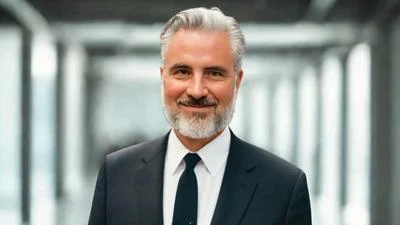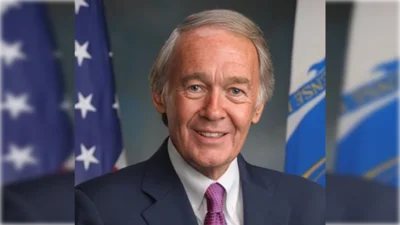When it comes to the cost of prescription drugs in America, almost everyone agrees that prices are high. What they don’t agree on is why, and a three-hour congressional hearing did little to definitively answer that question.
The U.S. Senate Committee on Health, Education, Labor and Pensions hearing "The Need to Make Insulin Affordable for All Americans," conducted May 10, featured testimony from executives of three pharmaceutical companies and three insurance-benefits providers. The hearing was broadly about prices of prescription drugs, with insulin as a focal point.
“For me, the bottom line of this hearing is not complicated,” Committee Chairman Sen. Bernie Sanders (I-Vt.) said during the hearing. “I don’t care whether you’re a Democrat, Republican, independent or whatever you are. All over this country, people are saying ‘Enough is enough.’ They are sick and tired of paying outrageously high prices, not only for insulin, but for other products as well. They want action, and this committee is going to do what we can to respond to their needs, and we need the help of the people on the panel to do that.”
He cited examples of young adults who have died because they rationed their insulin in order to offset the high cost of the medicine.
Sanders said he took a trip to Ontario, Canada, with some diabetics who were able to purchase insulin there for one-tenth the price of what they’d pay in the U.S.
“And I’ll never forget, as long as I live, the tears coming out of a mother’s eyes because she could suddenly afford insulin,” Sanders said, adding that he promised them they weren’t going to have to travel to Canada for less-expensive medications for much longer.
Sen. Bill Cassidy (R-La.), however, said achieving that goal might be difficult and that he expected some finger-pointing between the pharmaceutical manufacturers and the pharmacy benefit managers (PBM) for insurance companies as to which is responsible for costs.
The testimony seemed to bear that out.
Eli Lilly & Co. CEO David Ricks, Novo Nordisk CEO Lars Fruergaard Jørgensen, and Sanofi CEO Paul Hudson testified about how big pharma gets a product to market.
Ricks addressed the evolving history of insulin drugs, noting the strides that had been made to increase lifespans. “There’s more work to do,” he stated in his written testimony. “That’s why Lilly consistently invests 25% of our total revenue into research and development.”
“Because of our efforts, people pay an average of $20.48 for a month’s supply of Lilly insulin—less than 75 cents per day—and that was before we recently announced a new series of actions that will drive that average even lower,” Ricks wrote. “Last year, about 80% of our insulin list prices went to paying fees and rebates to companies who didn’t invent, develop, manufacture, nor study the medicine.”
He stated Lilly has two insulin options, and the less expensive one is often not covered by insurance plans.
Novo Nordisk's Jergensen expanded upon that, saying that the argument that insulin has been around for 100 years so it should be cheaper, is a misconception.
“This implies that nothing has changed since insulin was discovered in 1921. Nothing could be further from the truth,” Jergensen said. "While advancement in insulins may sound insignificant to those of us who don’t live with diabetes; in reality even small steps forward can meaningfully improve a patient’s life.”
Sanofi's Hudson said one of the prevailing challenges is the disconnect between net prices and out-of-pocket costs for the patient.
“Indeed, despite the significant decrease in net price, the average out-of-pocket costs for Lantus for patients with commercial insurance and Medicare have risen approximately 45% since 2012,” Hudson said to the committee.
“Although PBMs frequently pass rebates on to their plan clients, health plans are placing more of the cost burden on patients through benefit designs that include high deductibles, coinsurance, and multiple cost-sharing tiers," Hudson said.
CVS Health Executive Vice President David Joyner, Express Scripts President Adam Kautzner and Optum RX CEO Heather Cianfrocco presented a unified defense of PBMs in their testimony on negotiation tactics, including rebate programs that benefit patients.
“Drug manufacturers claim rebates are the reason for price increases, but the facts show otherwise,” Joyner said, adding that multiple government studies have shown that not to be the case.
Indeed, Kautzner said, PBMs play a vital role in delivering prescription affordability to "help ensure patients have access to effective medications at the most affordable prices."
Cianfrocco concurred, testifying that her company’s negotiated plans “deliver, on average, $1,600 in annual drug savings” per customer. Industrywide, she said, PBMs save the system $145 billion annually.
The PBMs praised a congressional push to speed the introduction of generic drugs to market as a way to alleviate the cost burden for patients.
“Drug competition is what ultimately drives lower list prices and lower net costs for the health care system,” Kautzner said.
Sanders sought commitment to reduce costs, citing specific examples where drug prices in the U.S. are higher than those abroad.
The short answer in most cases was that the price would fall when generics come into being, which Sanders interpreted as ‘no.’
Sen. Rand Paul (R-Ky.) touched on the tiered co-pay system and broader pricing strategies. He said one of the big frustrations for everyday people is the opaqueness of the system. He also expressed concern about pending legislation that is trying to make things better, but might make things worse, according to Paul.
Senators are committed to finding a solution in which PBMs continue driving down prices, but with a new purpose where the savings actually reach the patient, according to Sen. Cassidy.
Bipartisan legislation has been introduced to address the issue.
Senate Bill 1269 (INSULIN Act of 2023), referred to the committee, is designed to reduce the price of insulin and provide for patient protections with respect to the cost of insulin.
Senate bill 954 (Affordable Insulin Now Act of 2023), also referred to the committee, is designed to provide for appropriate cost-sharing for insulin products covered under private health plans, and to establish a program to support health care providers and pharmacies in providing discounted insulin products to uninsured individuals.
As a part of President Joe Biden's Inflation Reduction Act, nearly four million Americans who have diabetes and are on Medicare had insulin costs capped at $35 per month beginning in January. The White House fact sheet on the cap on insulin prices reports that Eli Lilly, the largest manufacturer of insulin in the U.S., announced it is lowering the sale price of insulin by 70% and ensuring that patients out-of-pocket costs for insulin are capped at no more than $35.









